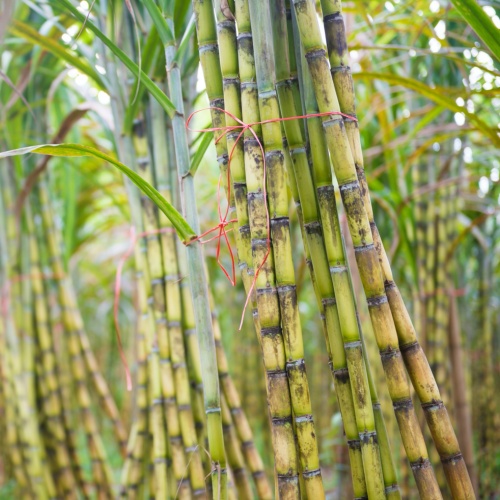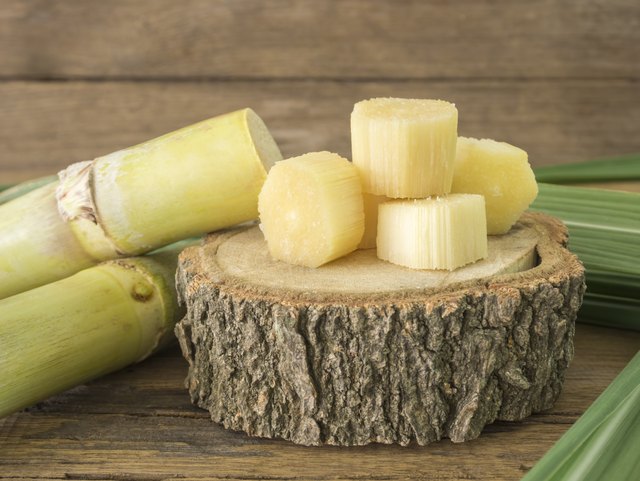Sugar and Cane: A Sweet Pairing in Health-Conscious Recipes
Sugar and Cane: A Sweet Pairing in Health-Conscious Recipes
Blog Article
Why Walking Stick Sugar Handling Chemicals Are Important for Modern Sugar Refining
The duty of cane sugar handling chemicals in modern-day sugar refining can not be overemphasized, as they are important to boosting both the effectiveness of extraction and the total top quality of the end product. Agents such as phosphoric acid and details flocculants are used to eliminate contaminations, leading to sugar that not only satisfies customer expectations yet likewise complies with sector requirements. However, the ramifications of these chemicals extend beyond high quality, touching upon market characteristics and environmental factors to consider. This elevates vital inquiries about the sustainability of such methods and their impact on the future of sugar manufacturing.
Role of Handling Chemicals
The effectiveness of walking cane sugar handling hinges considerably on the calculated application of handling chemicals. These chemicals play a pivotal role in boosting the effectiveness and quality of sugar extraction and refining. From the first phases of juice removal to the last purification steps, handling chemicals help with numerous crucial operations.
In the extraction stage, chemicals such as phosphoric acid and calcium hydroxide are employed to maximize the explanation procedure, assisting to get rid of impurities and put on hold solids from the walking stick juice. This not only enhances the return yet also makes certain the clarity of the end product. Furthermore, representatives like flocculants help in the quick settling of pollutants, therefore enhancing the total procedure.
As the handling advancements, chemicals are made use of in decolorization and condensation phases. Triggered carbon and ion exchange resins serve to remove shade and smell, making sure that the refined sugar satisfies customer high quality standards. Ultimately, the duty of handling chemicals extends beyond operational efficiency; they significantly influence the sensory qualities of the end product, adding to market competition. Thus, the careful selection and application of these chemicals are vital for achieving ideal results in cane sugar handling.
Key Kinds Of Chemicals
Walking cane sugar processing relies upon a range of key chemicals that assist in each phase of production. These chemicals play essential roles in clarifying, lightening, and purifying the sugar drawn out from cane.
One primary group of chemicals consists of flocculants, such as polyacrylamide, which help in the information process by promoting the gathering and settling of pollutants. In addition, calcium hydroxide is usually employed to reduce the effects of acidity and assist in the removal of non-sugar elements.
Bleaching agents, such as activated carbon and sulfur dioxide, are used to decolorize the syrup, leading to a clearer last item. These chemicals assist get rid of color compounds that might impact the sugar's look and bankability.
Additionally, phosphoric acid works as a pH regulatory authority throughout the handling stages, making certain optimum problems for the chemical activities associated with sugar removal and filtration.
Various other important agents include edta (ethylenediaminetetraacetic acid), which chelates metal ions that can catalyze undesirable responses, and sodium hydroxide, which assists in pH control throughout the refining procedure. Jointly, these chemicals boost efficiency and make certain a premium cane sugar product.
Advantages for Sugar Top Quality
Often neglected, the usage of particular handling chemicals considerably improves the overall top quality of cane sugar. These chemicals play an essential function in refining processes, guaranteeing that the last product meets stringent market requirements for pureness and preference.

In addition, processing chemicals aid in accomplishing a regular granulation and structure, which are vital for customer approval. By controlling the formation process, these chemicals make certain that the sugar crystals create uniformly, causing a much more appealing item that liquifies well in various applications.
Additionally, making use of these chemicals can improve the life span of walking cane sugar by reducing dampness absorption and microbial development. Overall, the strategic application of processing chemicals is necessary for supplying high-grade cane sugar that meets customer assumptions and sector demands.
Ecological Impact Factors To Consider

Moreover, the energy-intensive nature of sugar refining, compounded by chemical usage, commonly causes increased carbon discharges. This adds to environment modification and increases problems relating to the sustainability of existing refining practices. In addition, the sourcing of these chemicals might involve methods that endanger check my blog biodiversity, such as monoculture farming, which reduces the resilience of farming communities.

To minimize these impacts, sugar refiners are progressively checking out lasting options and adopting best methods that reduce chemical use. Carrying out strenuous environmental administration systems can help guarantee that the refining process aligns with ecological criteria and advertises biodiversity. Inevitably, a balanced method that focuses on both sugar quality and ecological stewardship is crucial for the long-term viability of the sugar industry.
Future Patterns in Refining
As the sugar industry grapples with the ecological challenges related to standard refining approaches, innovative techniques are emerging to enhance both efficiency and sustainability. One substantial trend is the adoption of green chemistry concepts, which focus on making use of non-toxic, biodegradable handling chemicals. This shift not just decreases environmental influence but additionally addresses consumer demand for cleaner manufacturing approaches.
Another promising advancement is the implementation of sophisticated purification innovations, such as membrane layer splitting up and adsorption processes. These techniques improve the quality and top quality of the sugar while minimizing the quantity of wastewater generated throughout refining. In addition, the combination of electronic technologies, including IoT and AI, is changing operational performance by making it possible for real-time tracking and predictive upkeep, hence decreasing source waste.
In addition, making use of by-products from sugar refining, such as bagasse and molasses, is acquiring grip. These materials can be transformed right into biofuels or value-added items, adding to a round economic climate within the market. Collectively, these patterns indicate a change towards more lasting techniques that not only improve operational effectiveness however also line up with global sustainability goals, making certain the future feasibility of sugar refining.
Verdict
Walking cane sugar handling chemicals are vital in modern sugar refining, substantially boosting the efficiency and high quality of sugar removal. The strategic use of these chemicals not just improves the pureness and taste of the end product but also makes sure consistent condensation and appearance. As the industry increasingly prioritizes sustainability, the fostering of environmentally-friendly handling representatives is most likely to shape future trends in refining, inevitably resulting in higher top quality products and prolonged life span for customers.

Inevitably, my link a balanced technique that focuses on both sugar top quality and environmental stewardship is crucial for the long-lasting practicality of the sugar industry.
Walking stick sugar handling chemicals are necessary in contemporary sugar refining, significantly improving the effectiveness and quality of sugar removal.
Report this page